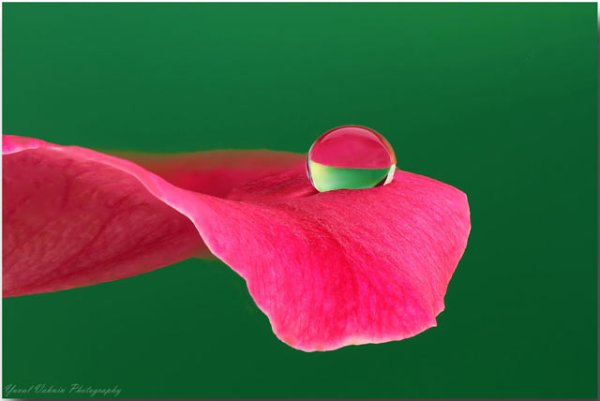NaPoWriMo 2016 : Day One
SYNCHRONICITY*
‘God Anonymous’
it is, when
miracles occur;
Synchronicity
we call it
to be ‘accepted’.
Held by Love, we search
endlessly –
proof of the Divine!

image source: https://in.pinterest.com/pin/86342517828554929/
©Lakshmi S. Menon
*Day One Prompt: the LUNE :
Today, I challenge you to write a lune. This is a sort of English-language haiku.
While the haiku is a three-line poem with a 5-7-5 syllable count, the lune is a three-line poem with a 5-3-5 syllable count. There’s also a variant based on word-count, instead of syllable count, where the poem still has three lines, but the first line has five words, the second line has three words, and the third line has five words again. Either kind will do, and you can write a one-lune poem, or write a poem consisting of multiple stanzas of lunes.
Why I WRITE
Day One: Writing 101, November 2, 2015
So here I am tweaking the prompt that I have attempted a few times already with a HAIKU !
WHY I WRITE
writing frees up space
from subterranean depths
life can flow again !
Lakshmi S. Menon
From Moral to Spiritual
There is a difference between the religious and the spiritual as this picture below shows:
MATURITY
fences in my mind
right and wrong strictures stifle
sapling has grown tall
Lakshmi S. Menon
World Mental Health Day
Today, October 10, is World Mental Health day. The term ‘mental health’ brings to mind an image of silent suffering. ‘Silent’ since unacknowledged by a society that remains ignorant and hence largely unaware that mental illness is also an illness, and not a taboo.
silence that defeats
a bird with a broken wing
fit body ill mind
by Lakshmi S. Menon
Gratitude: a haiku
Saw somewhere a prompt on gratitude. So here goes:
Gratitude
hunger gnaws. Mind blanks.
food takes on added lustre.
rain falls. Parched earth smiles.
Lakshmi S. Menon
Greetings to Writing 201-ers !!
Hey everyone !
Imagine my pleasant shock while idly browsing through WordPress Blogging U homepage and finding therein a mention of this blog SEAMLESS WRITING on what I had commented about Writing 201. See also here at the Last Call that I sadly missed out this time 😦
So to all participants of Writing 201(Poetry) here are some words of encouragement:
To me, this course helped to release some very fossilised poetry cells and out came some palatable verses of different kinds depending on the prompts. Trust me, this course is cunningly devised to help you discover poetry skills you thought you never had. So here’s wishing you ‘all the best’ and I hope the ‘powers that be of this course’, namely Michelle Weber, Ben Huberman et al bring out the next version of it soon. HINT 😉
Day NINETEEN: a LANDAY — “I call. You’re stone. One day you’ll look and find I’m gone”
Day NINETEEN : NaPoWriMo 2015
And for today’s prompt (optional, as always!), I’d like to challenge you to write a landay. The lines in the heading bar are by a young Pashtun girl called Muskan, who penned these lines anonymously.
Landays are 22-syllable couplets, generally rhyming. The first line has 9 syllables, the second line has 13 syllables, the lines in ending in sounds of na or ma in the original. The form comes from Afghanistan, where women often use it in verses that range from the sly and humorous to the deeply sardonic and melancholy.
Check out this long investigative article on landays for a fascinating look into a form of poetry often composed in secret, and rarely written down. You could try to write a single landay – a hard-hitting couplet that shares some secret (or unspoken) truth, or you could try to write a poem that strings multiple landays together like stanzas (maybe something akin to a syllabic ghazal?)
Poem in process
Writing 101: Day SIX: study of a Character
Day SIX: Character Study
Today’s Prompt: Who’s the most interesting person (or people) you’ve met this year?
Our stories are inevitably linked to the people around us. We are social creatures: from the family members and friends who’ve known us since childhood, to the coworkers, service providers, and strangers who populate our world (and, at times, leave an unexpected mark on us).
Today, write a post focusing on one — or more — of the people that have recently entered your life, and tell us how your narratives intersected. It can be your new partner, your newborn child, or the friendly barista whose real story you’d love to learn (or imagine), or any other person you’ve met for the first time in the past year.
Today’s twist: Turn your post into a character study.
In displaying the psychology of your characters, minute particulars are essential. God save us from vague generalizations! – Anton Chekhov, Letter to Alexander Chekhov; May 10, 1886
Don’t just list their features. Tell us something about how their physical appearance shapes the way they act and engage with others. For example, see how the author of this moving photo essay, which documents the final weeks of a woman dying of cancer, captures the kernel of the woman’s spirit with a short, masterful statement: ‘Her eyes told stories that her voice didn’t have the power to articulate and she had a kindness that immediately made me feel like we had been friends for years.’ Give us a glimpse of what makes this person unique. We all have our own quirks, mannerisms, and individual gestures, both physical and linguistic.
The Dignified Beggar
Would you associate dignity with a beggar? But that is exactly how it was with this old, emaciated man who begged at the same spot everyday, a few yards away from my home. He would come early in the morning and set himself up. Neatly he would arrange his mat, plastic sheets, begging utensils and sometimes when it was very sunny or rainy, an umbrella to shield his head.I invariably would give him some food, left over from the previous night, or at least a banana or two.
He was almost bald, with wide-set eyes, a prominent nose, hollowed out cheeks, a weak chin and a slow smile when you acknowledged him. He would quietly sit there till evening, a little apart from the others, silent and reflective, a contrast to the noisy squabbles near him. While walking past, some days I’d have nothing to give him, but there was no protest from him, no demands, said or unsaid. He would just be — placid, content, patient — no ire in his demeanour. I marvelled at that and wondered about his origins.
Beggars in India, like the homeless elsewhere, are not all born poor. Often extenuating circumstances — a natural calamity, a family tragedy, mental illness and sheer apathy to the old, reduces them to begging. It could happen to anyone, I mused.
One day, my dignified beggar was no longer at his spot. I surmised with regret that he had passed on perhaps, penniless till the end, but with the richness of his spirit intact.
Day FIFTEEN: a Poem about Poetry
Day FIFTEEN: NaPoWriMo 2015
Our featured participant today is Inktuition, where the dialogue poem for Day 14 retraces a conversation every writer has with him or herself probably about twenty times a day. Hopefully, NaPoWriMo is helping you all to overcome the “fear” part of your internal writing dialogue!
Today’s poetry resource answers the question you may not have known you had: What is a Chapbook? I’ll let you read more at the link, but in brief, a chapbook is a collection of poems – but one that is much shorter than the typical 48-60 pages of a full-length collection. 15-25 pages is typical. There are many small presses that specialize in publishing them, often in handmade editions. They can be a great way to get your poetry in front of your audience before you’ve built up the reputation and credibility that would lead a publisher to take a chance on a full-length collection. Plus, they’re fun to trade and collect! (Think of them as the Pokemon of poetry — “Chapbook, I choose you!”)
And now for our prompt (optional, as always). Today, I challenge you to write a poem that addresses itself or some aspect of its self (i.e. “Dear Poem,” or “what are my quatrains up to?”; “Couplet, come with me . . .”) This might seem a little meta at first, or even kind of cheesy. But it can be a great way of interrogating (or at least, asking polite questions) of your own writing process and the motivations you have for writing, and the motivations you ascribe to your readers.
A HAIKU on Poetry
when I pen poems
floodgates release, heart opens —
distilled memories.
© Lakshmi S. Menon & SEAMLESS WRITING
DAY THIRTEEN: A Poem in Riddles
Day THIRTEEN: NaPoWriMo 2015
Our featured participant today is Somewhere In-Between, where the poem for Day 13 takes us deep inside the vocabulary of cars. I have to admit, whenever anyone points out a particularly interesting car to me, my reaction is “Oh, yes, I see that one seems to have wheels, and um, yes, it drives on roads.” But as this poem shows, even though cars aren’t my thing, other people’s enthusiasm for them is genuine, and has a language of its own.
And today’s featured poetry resource is an “oldie but a goodie” – Poetry Daily. The site features a new poem each day, largely drawn from newly published books and issues of journals. It’s a great way to find new poems and poets and books!
And now for our prompt (as always, it’s optional!). In keeping with the mysterious quality of the number 13, today I challenge you to write a riddle poem. This poem should describe something without ever naming it. Perhaps each line could be a different metaphor for the same object? Maybe the title of the poem can be the “answer” to the riddle. The result could be a bit like our Day One poems of negation, but the lines don’t need to be expressed in negatives. To get you thinking, here’s one of my favorite examples of a “riddle” poem – Sylvia Plath’s “Metaphors”:
I’m a riddle in nine syllables,
An elephant, a ponderous house,
A melon strolling on two tendrils.
O red fruit, ivory, fine timbers!
This loaf’s big with its yeasty rising.
Money’s new-minted in this fat purse.
I’m a means, a stage, a cow in calf.
I’ve eaten a bag of green apples,
Boarded the train there’s no getting off.
Working around it !
© Lakshmi S. Menon & SEAMLESS WRITING

Would love to hear from you !